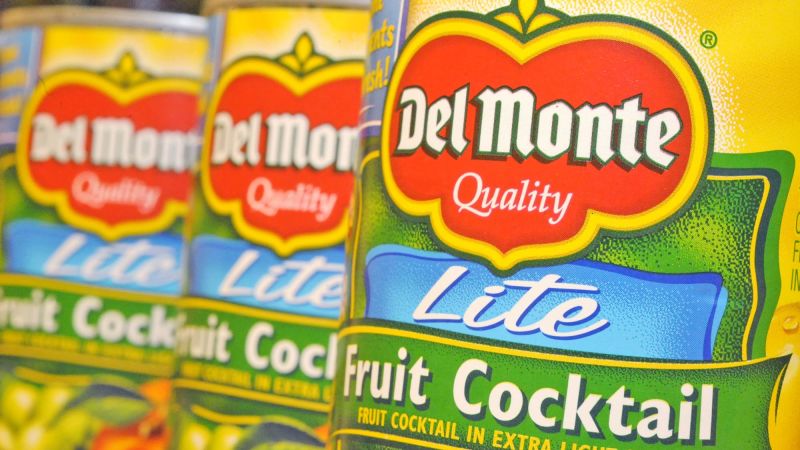Del Monte Foods, the 138-year-old company best known for its canned fruits and vegetables, has filed for bankruptcy and is looking for a buyer.
Late Thursday, the company announced it was voluntarily entering Chapter 11 and is going through a sale process for all of its assets. Among the company’s product lines are a number of well-known kitchen staples, including College Inn broths and Contadina canned tomatoes, as well as its flagship Del Monte brand.
“After a thorough evaluation of all available options, we determined a court-supervised sale process is the most effective way to accelerate our turnaround and create a stronger and enduring Del Monte Foods,” said President and CEO Greg Longstreet, in a statement.
Del Monte said it secured $912.5 million in new funding that will allow the company to remain afloat during the sale process and will keep the company operating as normal as it enters the peak canning season. The company listed liabilities estimated between $1 billion and $10 billion, according to court documents.
“With an improved capital structure, enhanced financial position and new ownership, we will be better positioned for long-term success,” added Longstreet.
He said that the company has “faced challenges intensified by a dynamic macroeconomic environment,” notably consumers cutting back on their spending and a growing shift toward spending on private labels.
Del Monte “says that consumer demand has declined causing it to incur increased costs related to surplus inventory that it has had to warehouse and attempt to move off shelves with increased promotional spending,” according to Sarah Foss, global head of legal and restructuring at Debtwire. “Consumer preferences have shifted away from preservative-laden canned food in favor of healthier alternatives.”
Del Monte got its start in 1886 and built its famous cannery in San Francisco in 1907. The company claims that it operated the largest fruit and vegetable cannery in the world by 1909.
